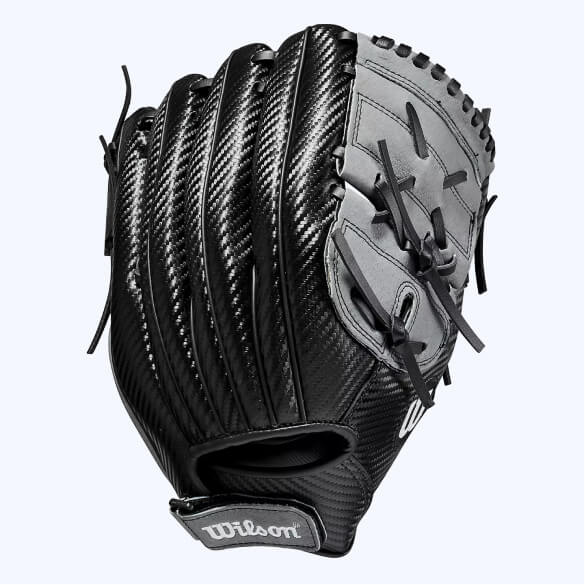Youth Baseball Gloves Guide: How to Select the Best Fit for Your Little Slugger
When choosing a youth baseball glove, consider your child's age, size, and position. For players under 8, opt for 9-10 inch gloves, while 8-13 year-olds may need 10-12 inch sizes. Look for a quarter-inch of space at the top for a proper fit. Material choices range from durable full-grain leather to lightweight synthetics, each with pros and cons. Position-specific features and web styles can enhance performance, so choose accordingly. Don't forget to break in the glove properly and maintain it regularly. With the right glove, your little slugger will be ready to field grounders and catch fly balls like a pro. There's more to uncover about selecting the perfect youth baseball glove.
Key Takeaways
- Choose glove size based on player's age: 9-10 inches for under 8, 10-12 inches for ages 8-13.
- Consider glove material: full-grain leather for durability, synthetic for lightweight and easy break-in.
- Select position-specific features like extra padding for catchers or longer pockets for outfielders.
- Pick appropriate web style: I-web for infielders, trapeze for outfielders, closed for younger players.
- Ensure proper fit with a quarter-inch of space at the top when the hand is inside.
Understanding Youth Glove Sizes
Choosing the right glove size is vital for young baseball players. Youth glove sizing typically ranges from 9 to 12 inches, measured from the top of the index finger to the heel of the glove. Guide to selecting youth baseball gloves. As a general rule, players under 8 years old should use gloves between 9 and 10 inches, while those aged 8-13 may need gloves between 10 and 12 inches
To guarantee proper fit, have your child try on several gloves. The glove should feel snug but not tight, allowing for some growth. When your child's hand is in the glove, there should be about a quarter-inch of space at the top. Pay attention to the webbing; it shouldn't be too large for their hand.
Remember that glove fit adjustments can be made using the wrist strap or lacing. These features allow for some customization as your child grows. It's important to prioritize comfort and control over getting the largest possible glove. A well-fitting glove will enhance your child's ability to catch, field, and play safely. Don't hesitate to consult with coaches or sporting goods professionals for additional guidance on youth glove sizing.
Material Matters
The glove material can make or break your young player's baseball experience. When choosing a youth baseball glove. Guide to selecting youth baseball gloves, you'll encounter various leather types and synthetic options. Each material has its pros and cons, so it's crucial to evaluate your child's needs and preferences
Full-grain leather gloves offer superior durability and performance but require a longer break-in period. They're ideal for serious players who'll use the glove frequently. Softer leather options, like steerhide or cowhide, provide a good balance between quality and affordability. These gloves are easier to break in and still offer excellent protection.
 Active Gear Advisor for performance pitching gloves
Active Gear Advisor for performance pitching glovesSynthetic gloves are lightweight and require minimal break-in time, making them perfect for younger or casual players. Guide to selecting youth baseball gloves. They're also more affordable and easier to maintain. However, they may not last as long as leather gloves
When selecting a glove material, assess your child's age, skill level, and commitment to the sport. Prioritize comfort and protection, ensuring the glove fits well and allows for proper hand movement. Remember, a well-chosen glove will enhance your child's performance and enjoyment of the game while keeping their hand safe during play.
 Visit the site ActiveGearAdvisor.com
Visit the site ActiveGearAdvisor.comPosition-Specific Glove Features
Baseball positions demand unique glove features customized to specific fielding requirements. As you shop for your child's glove, consider their primary position to guarantee peak performance and safety.
Catcher's gloves are heavily padded with a hinged design to protect hands from fast pitches. They're larger than other gloves, with a deep pocket for secure ball retention - Guide to selecting youth baseball gloves. Infielder's gloves are smaller and shallower, allowing quick transfers for speedy plays. Look for youth glove technologies that enhance flexibility and reduce weight
 Visit the site ActiveGearAdvisor.com
Visit the site ActiveGearAdvisor.comOutfielder's gloves feature longer, deeper pockets to catch fly balls. They're typically larger than infield gloves, providing more reach. Discover youth baseball gloves on Active Gear Advisor. First baseman's mitts are distinct, with extra padding and a wide, scoop-like shape for scooping throws out of the dirt
Regardless of position, prioritize comfort features (Guide to selecting youth baseball gloves) and fit adjustments. Proper sizing is vital for control and safety. Many youth gloves offer easy-close mechanisms and adjustable wrist straps for a secure fit. Consider padding options in the palm and fingers for added protection. Remember, a well-fitted glove will enhance your child's fielding ability and enjoyment of the game
Web Styles Explained
Six main web styles dominate youth baseball gloves, each offering unique advantages for different positions and playing styles. When selecting a glove, consider the web design as carefully as you would a website's user experience.
If you have any thoughts pertaining to exactly where and how to use Pitchers Gloves, you can get in touch with us at our page.